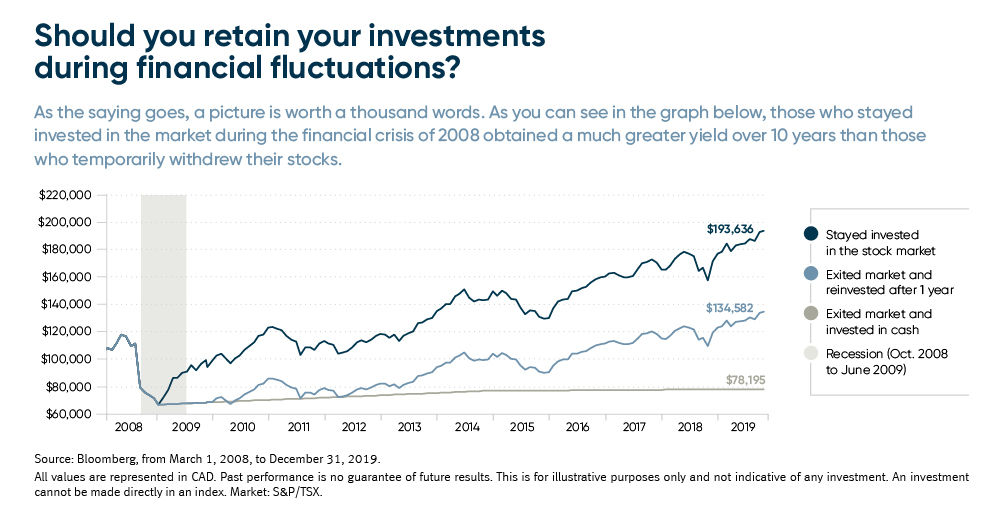Diversification: the how
Taking an agnostic approach to investing means remaining open to all product types and all investment vehicles such as ETFs and mutual funds available on the market. When building a portfolio, many investors limit themselves exclusively to a particular type of product or investment vehicle.
For example, an investor who has all the assets in their portfolio in equities would completely miss out on the bond market, which offers an attractive potential for capital preservation in bear markets.
In other words, taking an agnostic approach when selecting investment products and building a portfolio, thus the how, means accepting that all market assumptions are temporary and that it can be harmful to limit your savings to a single type of investment product. It also means being flexible and adaptable as the situation warrants.
Timing investment decisions: the when
Investors often let their emotions guide them. When markets fall, too many investors emotionally leave the market and sell their investments at a loss. Conversely, when markets rise significantly, excessively enthusiastic investors enter the market while prices are often artificially inflated, assuming that prices will only rise further. Neither of these are ideal investment approaches.
For example, a more modest, but systematic and recurring savings approach that is not tied to market events is preferable to a more substantial investment approach driven by an investor encouraged by a bull market.
All the same, selling an investment at a loss during a market crash can have a significant impact on whether investors can achieve their long-term investment goals. In fact, recent history shows that global stock markets have always returned to their previous levels (and have even reached new highs!) following sharp falls.
An agnostic approach to investing holds that value opportunities are available in both bull and bear markets. Investors should therefore avoid letting their emotions take over and avoid relying strictly on market events to make decisions. This can prove very profitable in the long run.



